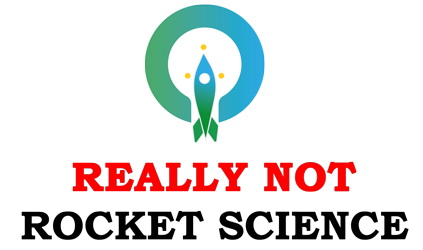Introduction
Within the past decade, the demand for project managers has surged dramatically on a global scale, marking a significant expansion within the industry. However, amidst this thriving landscape, the Project Management Office (PMO) often remains overshadowed by the prominence of the Project Manager role. Despite its relatively lower visibility, the PMO harbours remarkable potential and offers exciting possibilities. In this article, we delve into the lesser-known yet impactful realm of the PMO, uncovering the wealth of opportunities it presents in today’s dynamic business environment.
The Project Manager VS PMO
Many often wonder what the difference is between a Project Manager and a PMO.
A project manager is tasked with leading the planning, execution, and control of specific projects, while The Project Management Office (PMO) is comprised of a dedicated team that assists project managers in successfully executing projects.

In a sense, the PMO is the unsung hero, the driving force that ensures projects stay on track and align with organisational goals.
Responsibilities of the PMO
The Project Management Office (PMO) plays a pivotal role in overseeing and enhancing project management practices throughout an organisation, with various key roles. Some of these roles include PMO Manager, support, Delivery Management, Governance Lead, Financial Analyst, to mention but a few.
It is important to note that PMOs are not junior to project managers; they are at par, and sometimes even more powerful than the project manager, as in some cases, project managers report to them. All PMOs are not created equally. A variety of activities go on within a PMO, and some of them are listed below.
- Reporting: Responsible for generating comprehensive reports that provide insights into project progress, potential risks, and overall performance.
- Governance and Standards: Develop and enforce consistent project management processes and standards to ensure uniformity and alignment with organisational goals.
- Quality Assurance: Oversee and assure the quality of project deliverables by implementing rigorous standards and conducting regular assessments to meet organisational benchmarks.
- Planning: Collaborate with project managers to develop effective project plans, ensuring clarity on goals, timelines, resource requirements, and overall project strategy.
- Resource Management: Oversee resource allocation across projects, including capacity planning, scheduling, and ensuring the appropriate deployment of skilled professionals to maximize efficiency.
- Monitoring and Reporting: Track project progress through dashboards and metrics, providing timely insights to identify areas for improvement and proactive issue resolution.
- Training and Mentoring: Provide coaching and development opportunities for project managers, enhancing their adherence to project management standards and fostering continuous improvement.
- Administrative Support: Offer administrative support by managing schedules, facilitating communication, and ensuring the smooth operation of day-to-day project activities.
- Process Improvement: Lead initiatives to continuously improve project management processes and procedures, streamlining workflows and implementing best practices for efficiency
These responsibilities collectively showcase the multifaceted role of a PMO in driving successful project outcomes and maintaining organisational effectiveness.
4 Reasons to Consider Getting a PMO Role
Working in a Project Management Office (PMO) offers numerous benefits that can significantly impact your career and professional growth. Here are several compelling reasons to consider joining a PMO:

- Career Progression: PMO roles provide a solid foundation for advancing into strategic positions and project leadership roles. By working in a PMO, you can develop essential competencies, gain valuable exposure, enhance your reputation, and contribute to the success of a wide range of projects.
- Skill Development: Joining a PMO offers an excellent opportunity to refine your project management skills and expand your professional network. By collaborating on diverse projects and learning from seasoned project managers, you can broaden your expertise and cultivate a well-rounded skill set in project management.
- Portfolio Management Exposure: In a PMO role, you’ll gain exposure to portfolio management, allowing you to understand how various projects align and how resources are optimized across multiple initiatives. This experience provides valuable insights into resource allocation, shifting project priorities, and the overall project management lifecycle.
- Process Improvement: PMO professionals are tasked with continuously improving project management processes and procedures within the organisation. By streamlining workflows and implementing best practices, PMO members ensure that projects are executed efficiently, on time, and within budget.
In conclusion, a career in a PMO offers a unique blend of strategic impact, skill development, leadership opportunities, cross-functional collaboration, and career advancement. If you’re passionate about driving organisational success and making a meaningful impact, consider exploring opportunities in the dynamic world of the Project Management Office.
To find out more about pursuing a PMO career, you can join our 6-week boot camp where you’ll be trained by one of the very best in the industry on how to set up a PMO or get a PMO role. To join our boot camp, please visit: https://reallynotrocketscience.co.uk/pmo-bootcamp/
Embrace the challenge, seize the opportunities, and embark on a rewarding career journey in project management excellence.


